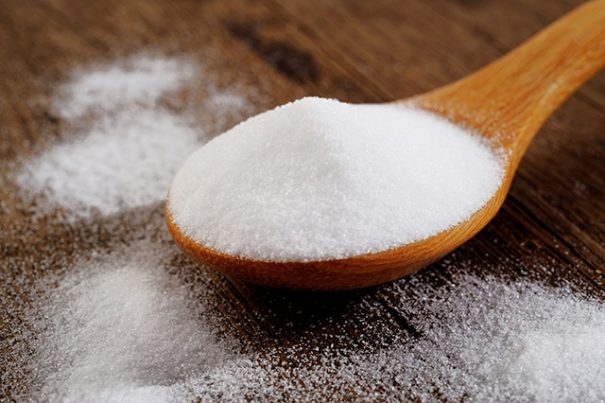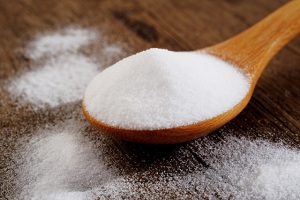
Baking soda sources, health benefits and uses
Tuesday, October 17, 2017 by Earl Garcia
http://www.naturalpedia.com/baking-soda-sources-health-risks.html

Baking soda or sodium bicarbonate is a widely used leavening agent for various types of baked products. It is alkaline in nature and is white crystalline in appearance, according to an article posted on The Spruce website. An entry featured on the open chemistry database Pub Chem also noted that the slightly bitter compound is produced following a dissociation between sodium and bicarbonate ions. According to the article, baking soda is commonly used as a systemic alkalizer and topical cleansing solution. The alkaline compound is also notably effective in replenishing the body’s electrolyte balance and regulating its pH levels.

Medicinal uses for baking soda
The high sodium content in baking soda helps stave off nutrient deficiency and improve both muscle strength and nerve function. The beneficial compound is also touted to cut the risk of developing hyperkalemia or very high potassium levels, which stems from acidosis or high acidity levels. Taking baking soda with lemon juice is a full-proof way of promoting cardiovascular health. The mixture is found to regulate blood pressure levels and reduce bad cholesterol rates, all while simultaneously increasing good cholesterol levels. This, in turn, reduces the likelihood of developing atherosclerosis, stroke and heart attack.
Baking soda is also remarkably effective in relieving a host of digestive issues. The compound’s antacid properties are known to alleviate gastric acidity, heartburn, and indigestion, according to an article posted on the Organic Facts website. Likewise, the entry adds that baking soda aids in relieving peptic ulcer disease and diarrhea. The entry also stresses that combining lemon juice with baking soda further amplifies the latter’s antacid properties. Doing so is known to address various digestive discomforts such as bloating, cramping and excess gas or flatulence. Adding lemon juice to baking soda may also induce healthy weight loss.
In addition, the beneficial compound is touted to improve oral health whether used alone or in combination with lemon juice. The potent antibacterial properties in baking soda effectively eradicates oral bacteria that cause a plethora of dental problems. Baking soda is also valued for its strong abrasive properties that make for an ideal teeth cleanser. Moreover, the antioxidant effects of both baking soda and lemon juice help reduce the risk of developing skin diseases and various types of cancer.
Baking soda helps improve the urinary system’s overall health as well. The leavening agent is found to relieve kidney stones and renal tubular acidosis. Combining baking soda with lemon juice is also touted to provide a diuretic effect that eliminates harmful wastes such as toxins, salts, fats, and excess water. The mixture may also strengthen the body’s defenses against a variety of infections, according to another Organic Facts article. The entry reveals that lemon juice contains strong antibacterial properties that fend off potential disease-causing pathogens, while baking soda possesses alkalizing effects that mitigate acidosis and inhibit infections such as colds and flu.
Body systems supported by baking soda
Baking soda is particularly healthful in maintaining heart health, muscle strength and nerve function. The leavening agent is also highly recommended in relieving both oral and digestive system disorders. Likewise, the beneficial compound helps maintain a healthy urinary tract and strong immune system.
Where to learn more
- Baking Soda Offers Many Miraculous and Mundane Uses
- Baking soda can clean your teeth, clear your complexion and act as a natural antacid
- Baking Soda Boosts Athletic Performance by Alkalizing the Body
- Revitalize your health with the cancer-fighting properties of baking soda and lemon
- Baking Soda and Lemon: A Powerful Healing Combination for Your Health
- Baking Soda and Lemon – A Combination to Heal Cancer
Summary
Baking soda prevents various digestive illnesses and dental health issues.
Baking soda staves off atherosclerosis, stroke, and heart attack.
Baking soda addresses kidney stones, hyperkalemia, and cancer.
Baking soda improves heart health, muscle strength and nerve function.
Baking soda is beneficial to both the urinary and immune systems.
Baking soda helps boosts both oral health and digestive profile.
Sources include:
Tagged Under: Tags: Baking Soda





